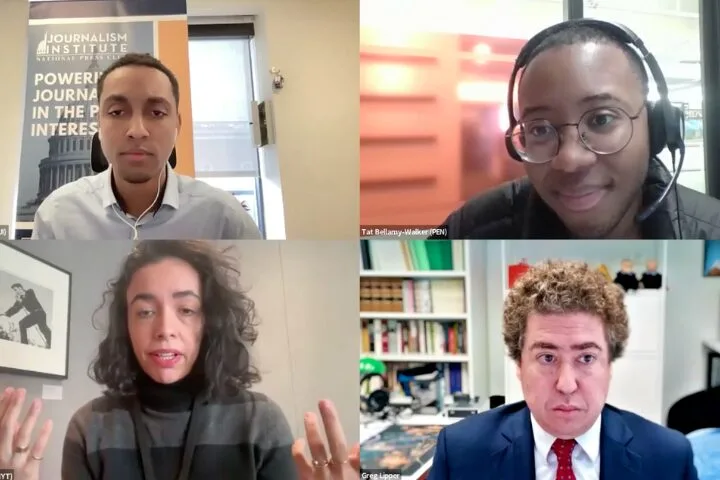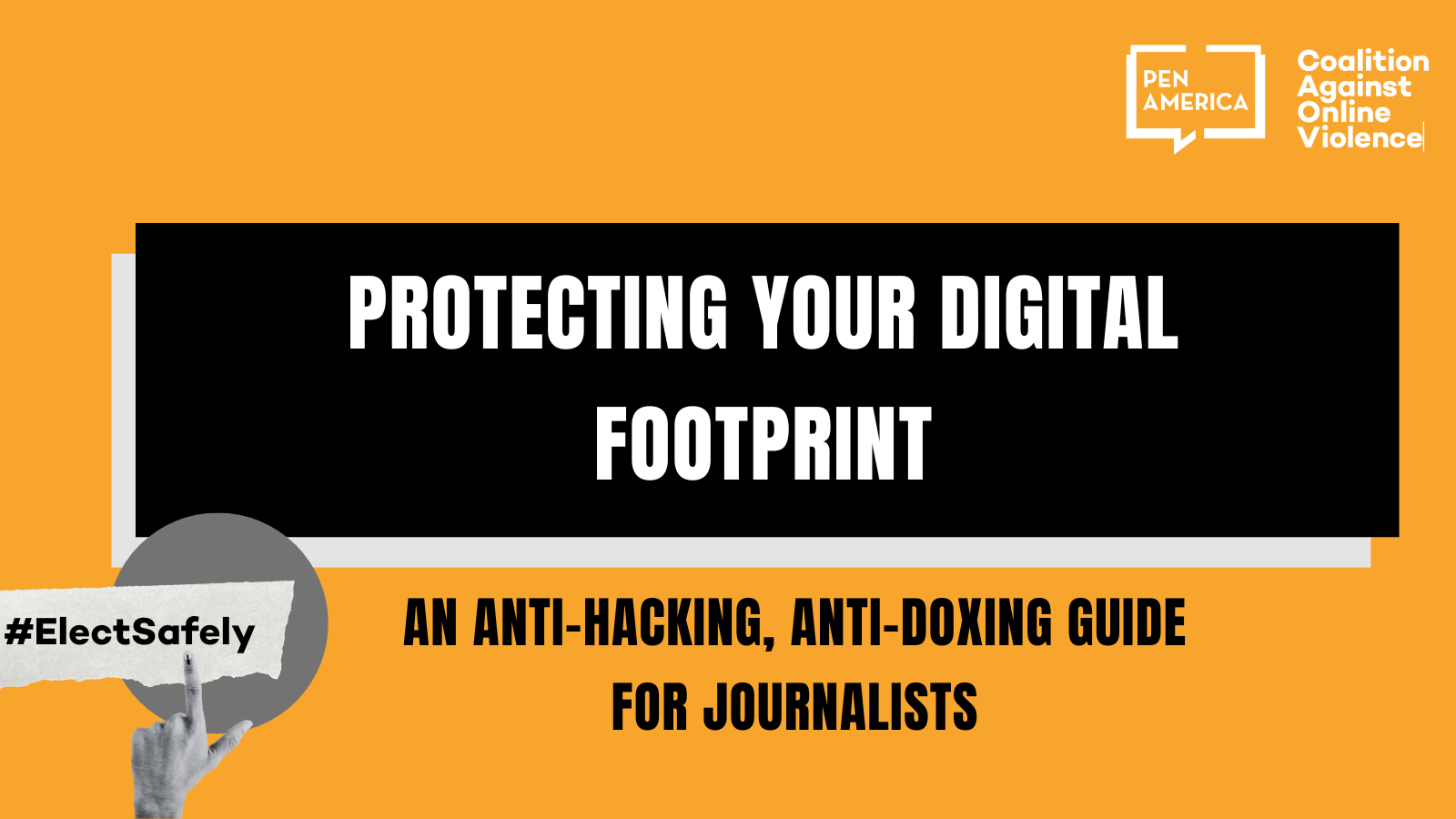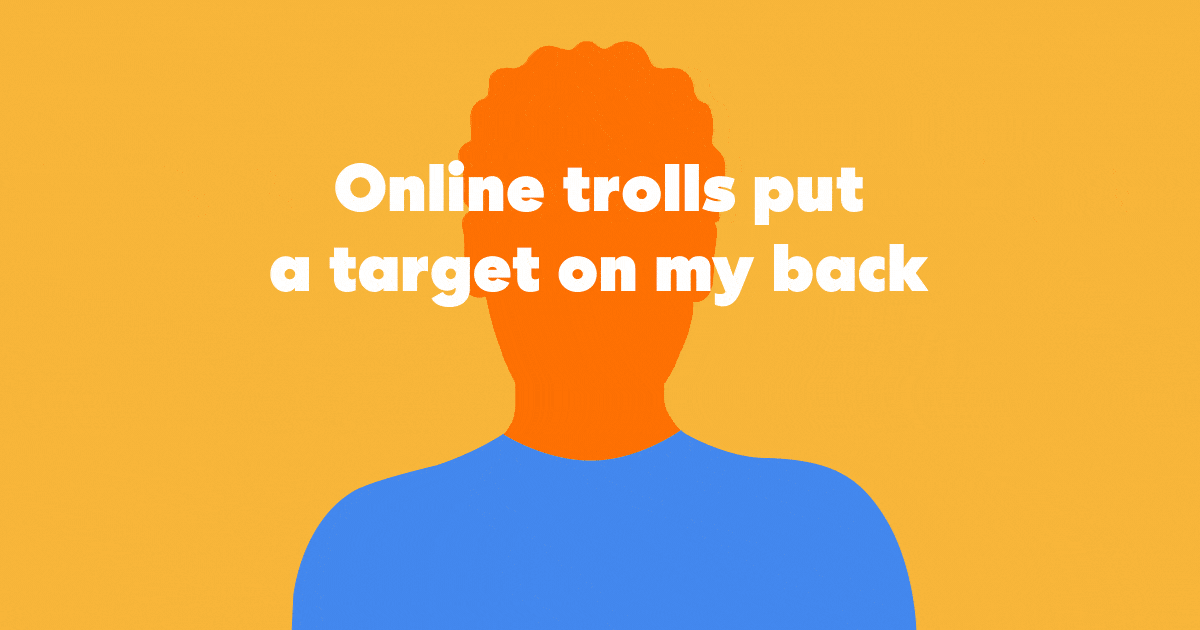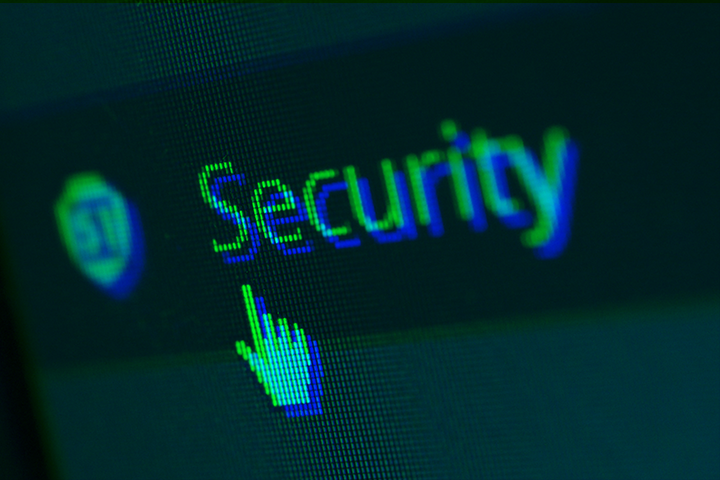By Victoria He
As book bans sweep the country, standing up for the freedom to read has led to harassment, doxxing, or worse. Harassment online and off is meant to intimidate and silence, even as thousands of books are taken off the shelves.
This Spring, PEN America joined forces with partners to launch Defending the Freedom to Read 101, a free webinar series to empower organizers and authors with concrete strategies to stay safe while speaking out. A recent session on April 16, “So you want to support the Freedom to Read,” featured Texas Freedom to Read Project founders Laney Hawes and Anne Russey and PEN America’s safety advisor, Jeje Mohamed.
Through years of speaking out, the Texas Freedom to Read Project has gained invaluable and hard-won experience navigating safety concerns online and off.
Here are four common intimidation tactics that Texas Freedom to Read Project has experienced, with guidance from Hawes, Russey, and Mohamed on how to navigate them:
- Online provocations: Hate speech and threats
Advocacy often involves organizing, sharing information, and promoting campaigns on social media. The Texas Freedom to Read Project organization, as well as individual members of the group, have been subjected to hateful speech, threats, impersonation, and other tactics intended to intimidate them and draw them into conflict online.
If you face accounts that are goading you, Hawes and Russey recommend that you report any abusive content, block the relevant accounts, and “exercise self-control. Do everything you can to not engage.” Mohamed also recommends asking your broader community to help you screenshot abuse and report malicious accounts to reduce your own exposure to harassment. You can read more about how to assess threats, document and report abuse, and organize allies here.
- Doxxing
Hawes, one of the founders of Texas Freedom to Read Project, described her experience being doxxed by a political strategist and state legislator, both of whom shared her full name, address, and other information online. Doxxing is the publishing of private information, such as a home address or phone number, to intimidate and silence the target. Hawes immediately filed reports to the police and the legislator’s state ethics committee. She explained, “If you have a chance to file a police report or complaint, there is no harm in doing so because you’re building a case and creating records of what happened.”
To mitigate the risk of being doxxed, Mohamed advises cleaning up your online footprint in advance: look up your basic information and images on various search engines, and make note of what you find. Consider deleting or archiving old social media posts, especially those that contain information about where you live, commonly visited places, and other personal information. Finally, remove your private information from data broker websites, either manually (check out Consumer Report’s Permission Slip and Yael Grauer’s Big Ass Data Broker Opt Out List) or by subscribing to data scrubbing services (such as DeleteMe, Kanary, Optery). For more guidance on managing your online footprint, check out PEN America’s Field Manual and Digital Safety Snacks.
- Hacking
When a Texas Freedom to Read Project founder encountered hackers who attempted to log into their accounts, they realized the importance of two factor authentication and password hygiene. They recommended:
- Use a password manager to create and store 16+ character passwords
- Regularly change passwords for your major accounts
- Where relevant, pay for social media account verification, Hawes said, “because it will give you greater access to identity protection tools, and social media companies are more likely to help if something were to happen.”
Mohamed shared more digital safety tips to avoid bad actors breaching your accounts:
- Check logged-in social media sessions and log out of unauthorized ones
- Deactivate in-app location and tracking permissions
- Invent the answers to security questions.
For some simple ways to get started with password hygiene and 2FA, check out PEN America’s Field Manual and Digital Safety Snacks.
- In-person confrontations
After a school board meeting, one of Texas Freedom to Read Project’s founders saw several unknown vehicles parked near her car in an empty parking lot. Instead of walking by herself, she stayed inside the building, took photographs of the cars, and called friends who lived nearby, who were able to pick her up. In situations where you are concerned that someone may follow you after an event, consider driving a circuitous route and visiting a third location before going home.
While Hawes and Russey reminded participants that many of their events are full of supporters, they also shared stories of being confronted at public meetings. In these situations, Hawes said, “there is so much value in walking away.”
Mohamed further emphasized practicing self restraint, staying calm, and using deescalation tactics when events get heated, including:
- Trying to create some distance from the people causing the disturbance
- Heading to a more populated location so you are not alone
- Recording the confrontation
- After the incident, writing down all the details you can remember.
Overall: Plan ahead
A little preparation can go a long way. Mohamed recommends doing some simple safety planning ahead of time to reduce your risk and ensure you feel empowered and ready. Before any event, brainstorm potential disruptions and what steps you might take in different situations. If the event is in person, identify emergency exit routes and bathrooms, establish a meeting point in case you get separated from allies, keep an eye on crowd behaviors, and above all, trust your gut. Create a network of people who will tip you off if they see anything suspicious in person or online, and do the same for other folks in your network. For online or in-person events, registration forms can help presenters have a sense of who will attend. After an event, ask yourself what went well and what could have gone better and update your plans for the future.
Consider what kinds of roles are right for different people in your group, whether public-facing or more behind-the-scenes. Remember that, as Hawes explained: “you don’t have to be the public face to whatever causes are important to you…you can find the way to advocate that’s right for you. Whatever issues are important to you, just do what you can do… do what you do best.”
Conclusion: The Value of Community
Harassment, both online and offline, are intended to intimidate and silence us. By learning from organizers about what they’ve experienced, we can better prepare ourselves to stay safe and speak out. Hawes and Russey explained that one of their biggest assets and sources of strength is their communication with each other, the support of their friends and allies, and the networks of care they have built through their organizing. As Mohamed encouraged viewers, be sure to “take breaks, practice self-care, and lean on your community.”









